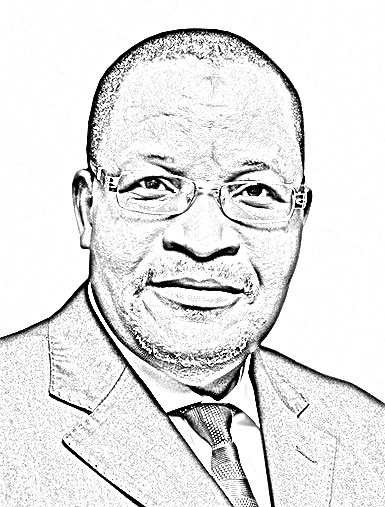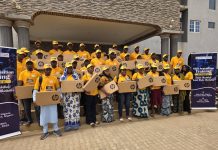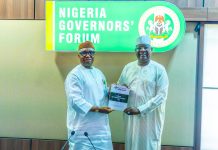Says, all 774 LGAs in Nigeria will enjoy broadband
There is a holistic, strategic plan being conscientiously implemented to address the infrastructure deficit in the telecommunications sector with the objective to bridge the digital divide which had undermined Nigeria’s march to a robust digital economy.
Professor Umar Danbatta, the Executive Vice Chairman and Chief Executive Officer (EVC/CEO) of the Nigerian Communications Commission (NCC), has asserted, and emphasised that telecoms infrastructure deployment across rural communities in Nigeria is at the heart of every effort of Government towards ensuring the socio-economic development of Nigeria.
Danbatta made these declarations at the International Conference Centre Abuja, while delivering a keynote presentation at the 2021 national conference, exhibition, and annual general meeting of the Nigerian Society of Engineers which started two days ago.
At the conference, with the overarching theme “EXPANSION OF THE ENERGY MIX FOR NATIONAL ECONOMIC GROWTH”, Danbatta spoke focusing on a sub-theme, “Strategic Collaboration between the Town and Gown for Effective Rural Development”, at the 6th Roundtable Symposium of the Nigerian Society of Engineers’ College of Fellows.
The NCC CEO said that the vision of the Federal Government as enunciated in the Economic Recovery and Growth Plan (ERGP), National Digital Economy Policy and Strategy (2020-2030) and the National Broadband Plan (2020-2025) is being vigorously implemented. Explaining the connection between these policies and NCC’s operations, Danbatta stated that the NCC’s Strategic Management Plan (SMP) 2020-2024, streamlined in the Commission’s Strategic Vision Plan (2021-2025) to enhance operational and regulatory efficiency, is aligned with the Federal Government’s vision for an all-inclusive digital economy.
Accordingly, to improve Nigeria’s broadband infrastructure, Danbatta reiterated that NCC has divided Nigeria into seven (7) Zones, consisting of the existing 6 constitutional geopolitical divisions, and Lagos constituting the seventh, considering the importance of Lagos as a strategic commercial and technological hub within the structure of the Nigeria’s telecom ecosystem.
“The NCC has proceeded to licence companies for each of the seven zones, to deploy broadband infrastructure that will ensure speed of up to 25 megabits per second in the rural areas. Each of the 774 Local Government Areas of Nigeria will have an initial access point of at least 10 megabits per second.”
To demonstrate NCC’s readiness to race at the same tempo with the Federal Government as articulated in the policy documents, Danbatta stated that the licensed companies, otherwise known as Infrastructure Companies (Infracos), have been directed to move to site to cascade broadband infrastructure to the hinterland.
The EVC affirmed that there is timeframe for the implementation of these projects, including the building of specialised technology centres in the rural areas to enable stakeholders to harness huge benefits of ICT.
The NCC CEO stated that the Commission is waiting to see the Infracos demonstrate creditable level of deployment in the cities and also discharge the burden of proof of the existence of access points in LGAs in the next five months.
Otherwise, he stressed that the Commission may have “to take firm regulatory decisions” in the interest of the Nigerian people and start-ups, who have been waiting for the deployment of rural tech solutions to make contributions to the growth of the economy by exploring derivable benefits that accrue from a digitised economy.
Prof. Danbatta said one of the benefits of digital economy that NCC has collaborated with stakeholders to bring to fruition, is in the area of digital inclusion, where NCC has been collaborating with stakeholders, including the Central Bank of Nigeria (CBN) to ensure the target of 80 percent digital inclusion is achieved within the timeframe.
He said NCC will continue to collaborate with relevant stakeholders to enhance innovation, competition and participation in governance by the citizenry, which is one of the hallmarks of digital culture.
The EVC informed the enthusiastic audience at the Conference that Nigeria already has about 40,000 unique transceiver stations and their uniqueness is underpinned by their characteristics as enablers of 2G, 3G and 4G technologies. However, Prof. Danbatta asserted that this figure is inadequate for a country with Nigeria’s size and population. “The United Kingdom with less population, according to the EVC, has over 60,000 of such stations” he stated.
Besides, the licensing and direction given to the Infracos, Prof. Danbatta outlined NCC’s interventions to accelerate the bridging of the digital divide to include: construction of 250 kilometer of Backbone Transmission infrastructure (BTRAIN); 72 Rural Broadband Initiative (RUBI) projects; 1,334 School Knowledge Centres (SKCs); 192 Community Resource Centres (CRCs); Development and deployment of 218 of Local Content for E-Learning; 74 Information Resource Centres (E-Library); Clusters of Access Gaps Reduced from 217 to 112; Digitally Excluded Nigerians reduced from 40 million to 15 million.
Danbatta, whose keynote speech is titled, ‘ICT Facilities for Infrastructure Development’, recognised the imperative of ‘Town-Gown’ collaboration and admitted that as communities and universities confront the increasingly complex social and physical pressures, there is need for effective alignment between these two entities to maximize local resources, knowledge acquisition and efforts towards facilitating deployment of ICT infrastructure to the rural communities.
The EVC maintained that the provision of infrastructure in rural areas plays significant role in promoting entrepreneurship and economic progress for its dwellers and serves as enabler of better quality of life for rural dwellers through the diversification of the rural economy that digital culture enhances.
Danbatta bemoaned the level of ICT adoption and usage in the rural areas, declaring that it is low, compared to the rate of adoption in urban centres. This challenge, he attributed partly to inadequacy of ICT infrastructure, cost of ICT infrastructure deployment and challenge of energy (electricity).
Despite being Africa’s largest ICT market, and a dominant player in the sector, Danbatta affirmed that Nigeria still accounts for a sizeable percentage of the 1 billion world population of unconnected people. However, the EVC stated that NCC is driving the implementation of an ambitious infrastructure project to ensure that the unconnected population of the country are given the opportunity for digital inclusion. He said this reality explains NCC’s frontline role in driving improvement in communications infrastructure in the rural communities where majority of the digitally excluded segment of the population resides.
The foregoing according to the EVC, is the reason the Commission has also partnered and collaborated with all relevant stakeholders, as well as explored cooperation through several discussions with both state and non-state actors to give concrete expression to its commitment to strategic collaboration and partnership, which remains a defining matrix of its operational activities.
The EVC stated that the Commission will continue to engage appropriate stakeholders and explore necessary uptakes towards improving on all infrastructure that support digital economy particularly expansion projects in rural areas because rural infrastructure deployment is central to bridging digital divide in Nigeria.






